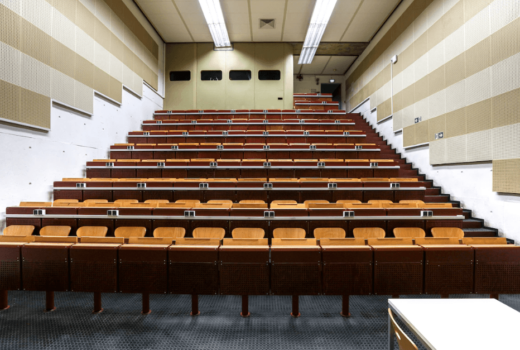Waagt Nederland sprong in Russisch businessonderwijs?

Business schools face an ever increasing
Out of these 2.019 students, only 2,4% subsequently applied forRussian universities. The rest pursued their MBA studies abroadwith the US being the choice of 53% of these applicants. This factcombined with the high tuition fees business schools earn byoffering MBA degrees make this group of students an especiallylucrative target. Dutch business schools like Rotterdam School ofManagement and Nijenrode Business University both charge well above€30.000 for their 1 year MBA programs. Despite this potential,Dutch business schools cannot yet develop enough traction fortapping into the Russian MBA market.
Bringing the Competition to Russia
Meanwhile, international competitors make a move, not waitingfor Russian students to come to them, but instead moving theiractivities to Moscow and St. Petersburg. There, 5 big businessschools opened campuses backed up by local institutions and theRussian government. Among those are Duke University (USA), VlerickLeuven Ghent University (Belgium), Stockholm School of Economics(Sweden), Grenoble Graduate School of Business (France), andKingston University (UK). Main advantage of their programs is thatRussian MBA students value their high quality English taughtprogram while Russian competitors lack behind in internationality.Overall, Russia’s research capacity has
Nevertheless, Peter Rafferty, director of international businessat Vlerick Leuven Ghent warns that opening up business schools inRussia’s growing market entails some downsides: “There arepolitical risks to consider. Establishing a business school inRussia is a completely bureaucratic process. Your building needs tobe approved. The institution needs to be approved and your courseprogram design needs approval.”
Russian authorities view the academic exodus of their countrymenand women with great worries. To react to this development,President Medvedev and Prime Minister Putin put into motion anumber of reforms aimed at increasing Russia’s competitiveness inresearch and higher education. In addition to that, PresidentMedvedev took things into his own hands when he became
Meest Gelezen
Vrouwen houden universiteit draaiende, maar krijgen daarvoor geen waardering
Wederom intimidatie van journalisten door universiteit, nu in Delft
Hbo-docent wil wel rolmodel zijn, maar niet eigen moreel kompas opdringen
‘Burgerschapsonderwijs moet ook verplicht worden in hbo en wo’
Raad van State: laat taaltoets nog niet gelden voor hbo-opleidingen



